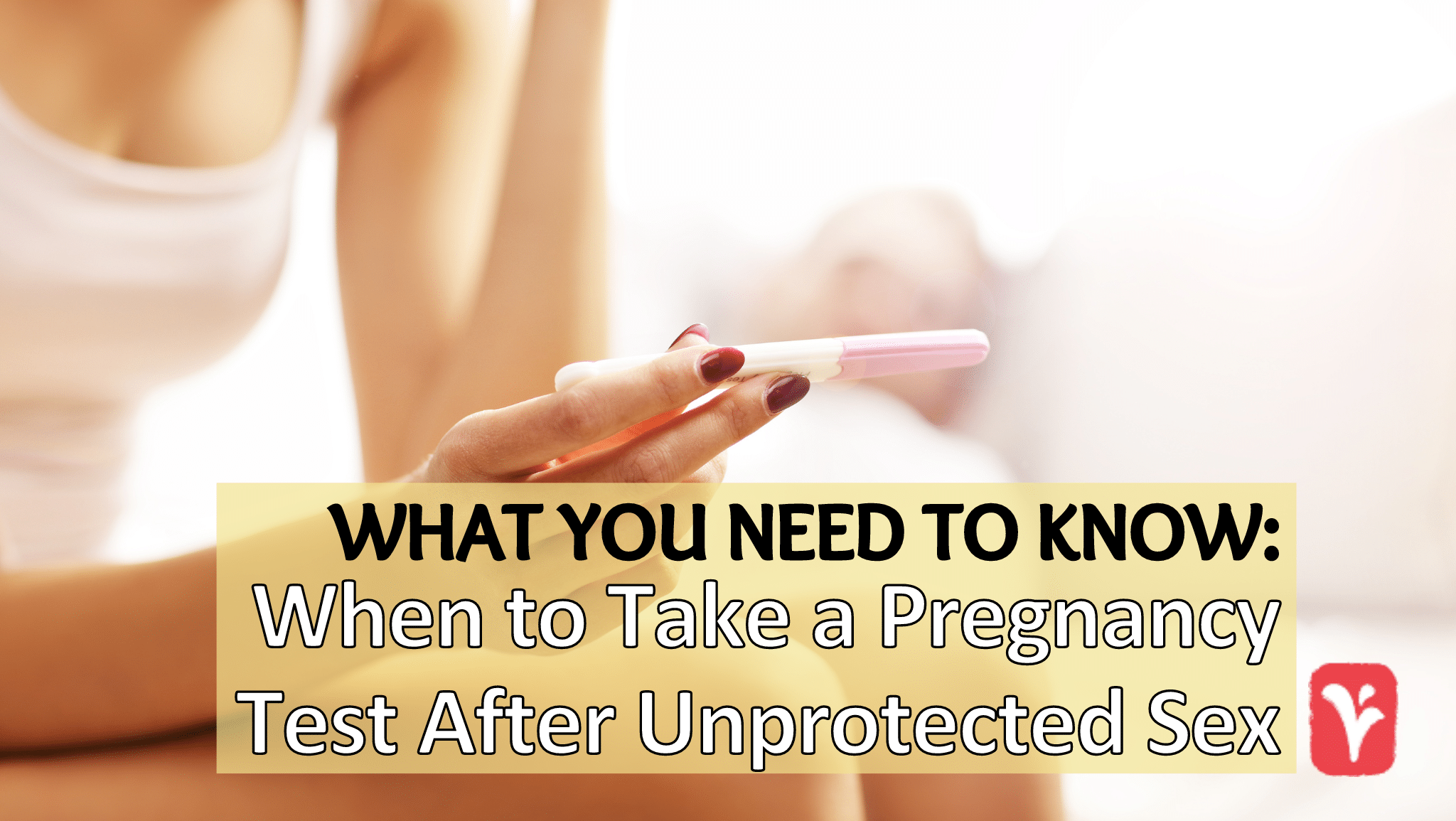If you’ve had unprotected sex, you might be wondering when the right time is to take a pregnancy test. Whichever results you are hoping for, and whether you’re trying to get pregnant or not, time can feel as slow as ever. While it’s understandable to want to know as soon as possible, taking a pregnancy test too quickly can give you a false negative.
How long does it take to get pregnant after sex?
It’s a little-known fact that pregnancy doesn’t occur immediately after unprotected sex. It can take six days for an egg and a sperm cell to join and develop into a fertilized egg. Then, the fertilized egg must travel to the uterus and implant in the uterine lining for a pregnancy. This journey can take an additional few days. From the time you have sex until pregnancy, it can take 2-3 weeks to become pregnant.
When can you get pregnant during your menstrual cycle?
You can get pregnant during your fertile window when you are most likely to become pregnant. A fertile window includes five days up to ovulation and one day after. Ovulation is when the ovaries release a mature egg. In an average 28-day menstrual cycle, ovulation typically occurs on day 14. Your menstrual cycle starts on the day of your first period.
Sperm can live for up to 5 days after intercourse, which is why you can get pregnant five days before ovulation and up to a day after. In this 6-day window, it’s possible to get pregnant after having sex only one time. Because pregnancy doesn’t happen instantaneously after sex, you can take emergency contraception within five days of unprotected sex if you do not wish to be pregnant. We provide emergency contraception over-the-counter, with no appointment needed.
If you’ve had sex in your fertile window, it’s wise to take a pregnancy test. Your fertile window can change slightly if you track your cycle, which can vary each month. Irregular periods can also affect the accurate prediction of a fertile window, so it’s still advised to take a test if you’ve had unprotected sex. If you have any early pregnancy symptoms, you can take a test.
Early symptoms of pregnancy include:
– Fatigue
– Breast tenderness or enlargement
– Mild cramping
– Missed period
– Nausea
– Increased urination
When can you take a pregnancy test?
Pregnancy tests work best after you’ve missed your period. While some tests say you can use them a few days before a missed period, they are more precise after the first day of your missed period.
But how can you know when to take a test if you don’t know when your period should arrive? If you have irregular periods or don’t know when your period is supposed to start, you can take a test approximately two weeks after unprotected sex. Because it can take 2-3 weeks for pregnancy to occur after intercourse, your test likely won’t be positive until after the first day of your missed period. If you take the test too early, you may receive a false negative. If you have irregular periods, you can take another test 3 days after your first.
Why won’t a pregnancy test be positive immediately?
Until 10-14 days after conception, your body won’t produce enough hCG to test positive. hCG is the hormone that pregnancy tests detect in your urine and blood, and it triggers a positive result. hCG levels start to increase after implantation occurs. When you use a home pregnancy test at the right time, they are up to 99% accurate.
Tips for taking a pregnancy test:
– Don’t drink too much water; this can dilute your urine and make it harder to detect hCG. Try to take a test during your first urination in the morning, which is more concentrated.
– Make sure to check the expiration date of your pregnancy test; expired tests can lead to false results.
– Take the test after your missed period, not before or right after unprotected sex.
Whether you need a first pregnancy test or want to confirm a positive result, AWHC is here for you. We provide confidential, free pregnancy testing. We offer both urine and blood tests. A blood test can confirm a pregnancy about a week after conception. Appointments are not needed for pregnancy testing. Depending on your results and wishes, we can provide nonjudgemental counseling on your options.
